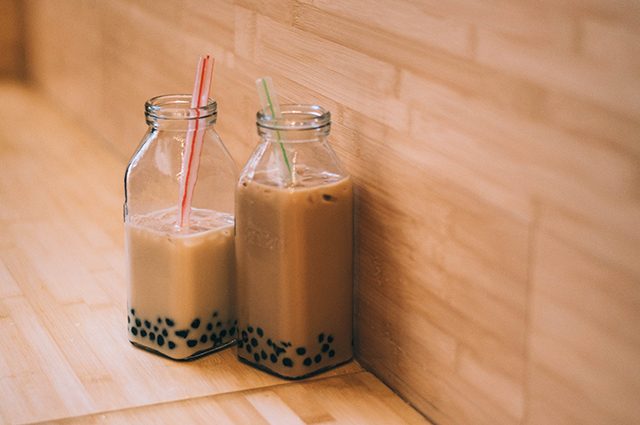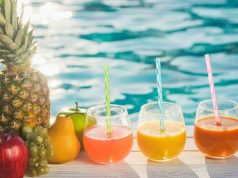A hospital in Singapore found that the widely popular brown sugar milk tea, particularly with pearls added to it, is among the unhealthiest drinks today due to its high sugar content.
Mount Alverina Hospital posted an infographic last July 12 that showed one order of brown sugar milk tea with pearls already has an alarming 18.5 teaspoons of sugar in it.
Happy Friday!Due to overwhelming requests from last week's post, we have done up a simple guide for easier viewing and…
Posted by Mount Alvernia Hospital on Friday, July 12, 2019
This is way beyond the recommended amount of at least eight to 11 teaspoons of sugar per day for adults, according to the Health Promotion Board of Singapore.
The graphic was the visual representation of the recent studies made in Singapore on the bubble milk tea drink because of its rising popularity among consumers there.
Rachel Tso, a dietician of Mount Alverina Hospital, wrote in an article titled “What’s in My Bubble Tea?” that other varieties of bubble teas are unhealthier because of their add-ons.
“The growing popularity of newer varieties such as honey pearls or brown sugar syrup would mean exceeding HPB’s recommendation of 8-11 teaspoons of sugar per day for adults – all in a single drink! Kids and teenagers should be having even less, with HPB recommending less than 5 teaspoons of sugar each day,” Tso said.
Meanwhile, toppings or additional ingredients are cited as the reason why the normally healthy green tea or black tea becomes somewhat more harmful than many other drinks in the market.
Milk tea foam was found to have the highest amount of calories (203 calories) of all the add-ons in milk tea drinks, while aloe vera has the least (31 calories).
“When ingredients like non-dairy creamer and toppings are added in, the increase in fat and sugar content instead increases the risk of chronic diseases,” she said.
“For instance, non-dairy creamer contains trans fat in the form of hydrogenated palm oil which has been strongly correlated with increasing the risk of heart disease and stroke,” she added.
Another dietician said that consuming such sweetened drinks is not a healthy choice.
“Drinking unsweetened black or green tea daily has health benefits, but drinking pearl milk tea regularly may not be a healthy choice if you are watching your weight or controlling your calorie and sugar intakes,” Wong Hui Xin, a dietician from Singapore’s Department of Dietetics said.
In recent years, various restaurants or stalls of this product have also popped up in many countries including the Philippines.
Bubble tea drinks are appealing to Filipinos in particular because they are usually served cold with different sugary flavors to choose from.
Sweeter than soft drinks
An article from Channel News Asia found that bubble teas in general have higher sugar levels than soft drinks.
“For instance, a 500 ml cup of brown sugar boba milk can contain about 92 g of sugar, about three times more than the amount of sugar in a 320ml can of Coca-Cola,” Jalelah Abu Baker wrote.
Experts say the harmful effects of these beverages are often overlooked because most people perceive them as the healthier alternative to soft drinks.
“If we look at the addictive nature of sugar it is not surprising that these drinks are popular and a lot of parents see this as a healthy option compared to soft drinks,” Health Coach Bonnie Rogers said.
Aside from weight gain, many conditions are associated with excess intake of sugar in the body. These include increased risk of heart diseases, diabetes, developing acne and even cancer.
How can I enjoy my bubble tea?
According to experts, it’s not necessary to avoid drinking milk teas altogether. There are healthier ways to enjoy them.
Mount Alverina Hospital suggested the following:
- Ask for fresh milk (low fat or skimmed milk) rather than the regular one.
- Limit yourself to one or two bubble teas a week.
- Order a lower calorie topping or add-on.
- Choose plain teas such as oolong tea or green tea. These have zero calories.
- Choose a smaller cup with lesser sugar or only 30% to your drink.
- Reduce the sugar level every time you order.










